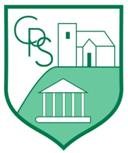Times Tables
The 2014 National Curriculum states that: "By the end of year 4, pupils should have memorised their multiplication tables up to and including the 12 multiplication table and show precision and fluency in their work."
In January 2016, the government announced its intentions to introduce the Multiplication Table Check (MTC) during Key Stage 2. The check is intended to help teachers identify pupils who have not yet mastered the important mathematical skill so schools can give them additional support.
How we teach pupils knowledge and recall of Multiplication Tables:
Fluent recall of mathematical facts, such as number recognition, basic counting and multiplication facts, should be a daily practice within all classrooms. Teachers will lead this from the front of the classroom, directing all pupils to participate orally in recall of accessible number or multiplication facts, as appropriate to the age and stage of learning of pupils. A range of strategies will be taught to help pupils identify links and patterns for calculating and recalling associated multiplication facts, using what they already know to work out new facts they may not know yet. Progression should be seen over time with the speed and accuracy of facts recalled.
Pupils may participate in carefully selected games and activities, creating opportunity for more independent recall of number and multiplication facts. Resourcing has been purchased to enable this, namely in the form of number link boards, dice, playing cards etc. There is greater ability for pupils to self-differentiation in their selection of which multiplication facts they wish to work on.
Times Table Rock Stars
As a school, we have subscribed to Times Table Rock Stars, and pupils are encouraged to use this platform to practice and embed their recall of multiplication facts in a fun and competitive way. Teachers should regularly encourage pupils to maintain their ongoing practice and monitor the progress of pupils in increasing their fluency and speed of responses. Within the platform is an equivalent module to the Multiplication Table Check (MTC) called Sound Check, and pupils in Years 3 and 4 should be direct to complete this regularly to familiarise themselves with the timed concept and allow adults to monitor their progress.
https://play.ttrockstars.com/auth/school/student
If you have forgotten or lost your login, ask your teacher or email the office and we'll get it sent out to you.
National Curriculum expectations for each year group:
- Year 1 - Count in multiples of 2, 5 and 10. Recall and use doubles of all numbers to 10 and corresponding halves.
- Year 2 - Recall and use multiplication and division facts for the 2, 5 and 10 multiplication tables.
- Year 3 - Recall and use multiplication and division facts for the 3, 4 and 8 multiplication tables.
- Year 4 - Recall multiplication and division facts for multiplication tables up to 12 x 12.
- Year 5 - Revision of all times tables and division facts up to 12 x 12 (and associated facts x/÷10, 100, 1000).
- Year 6 - Revision of all times tables and division facts up to 12 x 12 (and associated facts x/÷10, 100, 1000).
When will the Multiplication Tables Check be introduced and who will take it?
The MTC will be introduced in June 2020 for all eligible pupils of state-funded maintained schools, special schools and academies who are in Year 4 in the academic year 2019/20. Schools will be able to access the check during a three-week window in June, during which time they can choose when they administer the check. Prior to the mandatory check, schools will be able to provide their pupils access to a 'try-it-out area' to familiarise themselves with the system.
How will the multiplication tables check be delivered?
Schools will need to have a secure and reliable internet connection and access to computers or tablets in order to be able to administer the test, as the MTC will be delivered as an "online, on-screen digital assessment". Teachers will have the flexibility to administer the check to individuals, small groups or whole class at a time.
What will the multiplication tables check look like?
- There will be 25 questions worth one mark each. The questions will be in no particular order.
- Every question will follow the same format and will require the same type of response e.g. 4 x 8 = 32
- Children will have a maximum of six seconds to answer each question – this is based on research undertaken by the Standards and Testing Agency (STA). There will be a three-second pause before the next question is displayed.
- The emphasis will be on the "6, 7, 8, 9 and 12 multiplication tables", with two to four questions in every test taken from each of the 6, 7, 8, 9 and 12 multiplication tables, meaning that between 18 and 22 questions will focus on KS2 content.
- There will be no question reversals in any test. For example, "3 × 8 would not appear in the same form as 8 × 3".
- Children will be randomly assigned a test. The system will provide a range of tests, equal in difficulty, but with different questions in different orders. No test should have more than 30 per cent of the same questions as another test.
- Children will be able to access a "practice area" in the run up to the test window in June. This is so children can become familiar with the format of the test.
